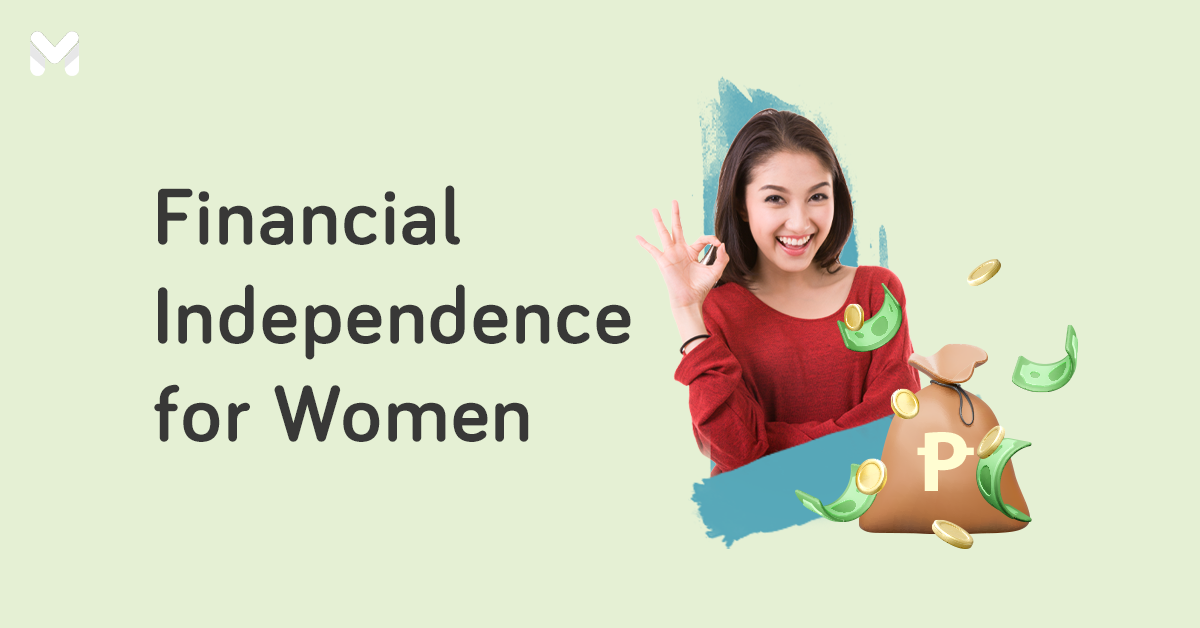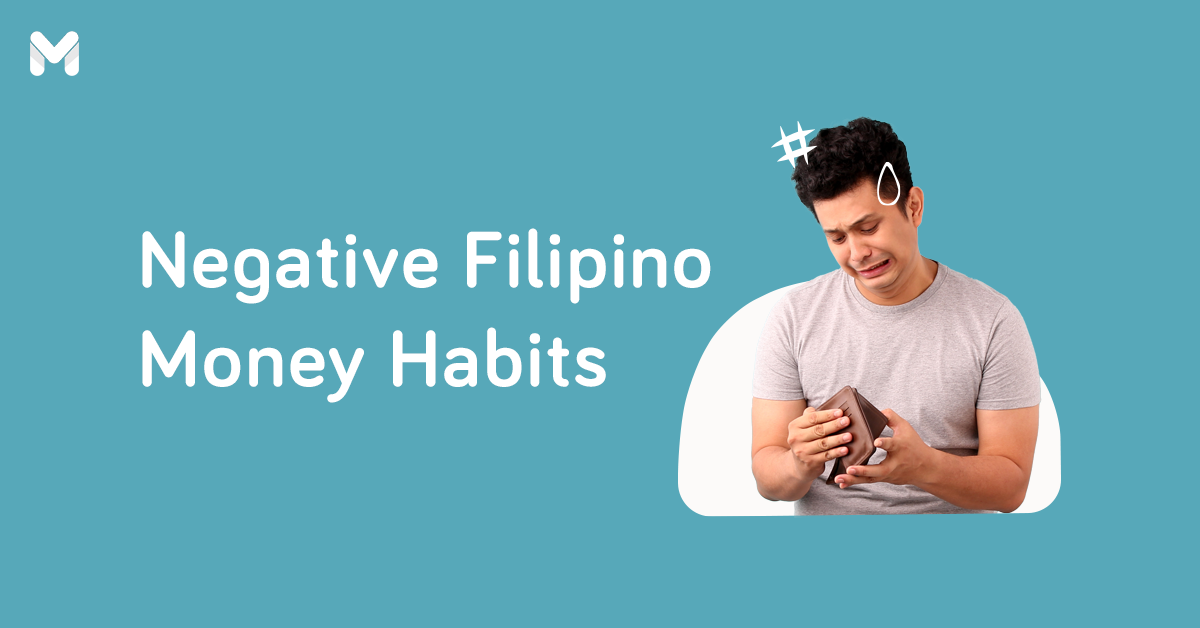Credit cards are possibly one of the most polarizing subjects in the history of money management. Depending on your habits, they can be either the best or the worst things that ever happened to your finances.
When used responsibly, a credit card can empower you to be more financially free. You’ll get many perks—cashback, rewards, discounts, and fraud protection—that you otherwise wouldn’t have access to.
However, it can also cripple you financially if you don’t put in the effort to be more knowledgeable, disciplined, and intentional in your credit card use.
Ready to kill old patterns? Check out this list of bad credit card habits to avoid, including tips on how to break them.
10 Bad Credit Card Habits That Can Ruin Your Credit Score
-Jan-16-2024-04-54-22-5329-PM.png?width=600&height=400&name=Pics%20for%20blog%20-%20600x400%20(21)-Jan-16-2024-04-54-22-5329-PM.png)
While a credit card can make your life easier, it can also ruin your credit score. You can’t underestimate the importance of your credit score as it spells the difference between getting approved or declined for another credit card or loan.
In a country like the Philippines which has a huge financial literacy gap,[1] those who don’t know any better may quickly fall into the mindset that credit is free money. One major slip, and they can go down a steep slope that leads directly to deep debt.
Keep a good credit score by breaking the following bad money habits.
❌ Paying Only the Minimum Amount Due
Half measures are dangerous—both in life and in managing credit. The minimum amount due on your credit card bill is not a license for you to go for the bare minimum.
You’re technically free to make only minimum payments every month, but doing so regularly as a quick fix will drag you deeper into debt as your unpaid balance adds up.
Plus, paying only the minimum amount due raises your credit utilization ratio.[2] By not settling your credit card bill in full, you incur interest, which raises your balance, thus increasing your credit utilization and hurting your credit score.
In simpler terms, making minimum monthly payments is almost the same as not paying your credit card bill at all as you just end up getting into more debt.
How to Break This Habit
How to avoid bad credit? Ignore the minimum amount due on your credit card bill. Think of it as a wolf in sheep’s clothing—it will earn your confidence now and then stab you with hefty fees in the next billing cycle.
Aim to pay your monthly balance in full at all times. A slip-up is okay once in a while—no one will blame you for the occasional mistake, especially if you have no choice. But if your budget allows it, settle your credit card bill in full so you don’t have to carry the balance and the guilt of not paying what you owe.
Cultivate this habit early to avoid sinking deeper into debt.
❌ Carrying a Balance to the Next Billing Cycle
-Jan-16-2024-04-55-55-6034-PM.png?width=600&height=400&name=Pics%20for%20blog%20-%20600x400%20(22)-Jan-16-2024-04-55-55-6034-PM.png)
What habit lowers your credit score the most? If it’s not yet apparent, let’s say it again: not paying your credit card balance in full.
Just because you’re paying more than the minimum amount due doesn’t mean you can pat yourself on the back and call yourself a pro in debt management.
Carrying a balance to the next billing cycle, no matter how seemingly small, has the same effect as paying only the minimum amount due. Slowly but surely, you’ll get mired in debt.
How to Break This Habit
Same as the previous entry, the best way to break this habit is to pay your balance in full. Again, it’s okay to carry over a balance from time to time, but don’t make it an excuse to not try harder.
If you find it difficult to break this habit, approach it a different way. Map out how much money you can let go of every month, and use that as the absolute maximum budget to allot for your monthly credit card expenses.
That way, you know you’re not spending more than what you have.
❌ Settling Your Bills Beyond the Due Date
Another of the more notorious credit card habits you must avoid is settling your bills late. Tardiness comes at a price when it comes to credit cards. You’ll be slapped with hefty late payment fees if you settle your bill even just a day beyond the due date.
Late payments also reflect badly on your credit score, which in turn affects your future credit or loan applications.
How to Break This Habit
If you have a savings account with the bank that issued your credit card, enable your bank’s autopay feature, which automatically deducts your credit card payments from your account.
That way, all you have to do is make sure that your savings account has enough balance every month. No need to manually settle your bills and run the risk of paying late.
As an alternative, you can also set up phone reminders so you’re always alerted to settle your bills on time.
❌ Missing Credit Card Payments Entirely
-Jan-16-2024-04-57-08-4733-PM.png?width=600&height=400&name=Pics%20for%20blog%20-%20600x400%20(23)-Jan-16-2024-04-57-08-4733-PM.png)
It’s one thing to be late on your credit card payments—but to miss them altogether? That’s a big NO if you’re serious about learning how to avoid bad credit.
It’s okay if you’re in a tight spot, but don’t make a habit of it. Otherwise, you’ll be looking at a future of catching up to debt with your credit score all in tatters.
How to Break This Habit
One of the signs of financial maturity is being able to handle debt responsibly without resorting to missing payments.
However, if you already find yourself deep in the hole, look for ways to increase your income. You can also try applying for a balance transfer credit card, although that also comes with its own pros and cons.
❌ Applying for Too Many Balance Transfer Credit Cards
On paper, applying for a balance transfer credit card can help you settle all your pending balances and loans.[3] Aside from the convenience of consolidating all your debt into just one account, it also reflects well on your credit score as it shows your initiative to settle all your debt proactively.
Just be cautious of turning this action into a habit—if your credit report reflects multiple attempts (successful or not) to open balance transfer credit cards, your credit score will take a hit. When that happens, not only will you still struggle to pay your debt—your chances of getting approved for financial aid in the future will also become slimmer.
How to Break This Habit
While getting a balance transfer credit card is not entirely worthy of making it to the list of credit card habits to avoid, it can still reflect badly on your credit score if you frequently jump from one balance transfer card to another. Before getting one, consider these tips:
- Get only one balance transfer credit card at a time. Settle all your debt before you move on to another one. While there are lots of choices out there, the goal is to avoid opening too many credit accounts so as not to hurt your credit score.
- Find a balance transfer credit card with a 0% introductory interest rate to soften the blow of settling all your unpaid balances at once.
- Don’t close your existing credit cards. Getting a balance transfer credit card doesn’t mean you should abandon your previous credit card. Show banks that you can manage multiple accounts responsibly.
❌ Applying for Too Many Credit Cards
-Jan-16-2024-04-58-33-6491-PM.png?width=600&height=400&name=Pics%20for%20blog%20-%20600x400%20(24)-Jan-16-2024-04-58-33-6491-PM.png)
Let’s say you are not deep in debt and can handle credit cards well. Does that mean you can apply for many credit cards all at once?
Not necessarily. Unless you have a sizable income that can cover multiple credit accounts, you really shouldn't try to own more than one or two credit cards.
Even if you’re confident that you can avoid debt, you might end up having to pay your bills with no room to grow your savings.
How to Break This Habit
What habit lowers your credit score? Applying for different credit cards all at once seems harmless, but it’s detrimental to your credit score if you do it too many times.
While it’s tempting to own more than one or two credit cards, always consider your financial capacity. Take into account the fact that each card comes with its own annual fees, interest rates, and other sets of charges.
Here are some more tips to break this habit:
- If you don’t find your current credit card exciting, reconsider what type of credit card you really want. Do you want a credit card that earns you more points, or do you want one with more rebate offers? Decide first on the value you expect to get from your card.
- Don’t get credit cards with the same perks. If you want a rewards credit card, don’t apply for two products at once. Keep one credit card per purpose.
- As much as possible, space out your credit card applications at least six months apart. Don’t apply for a new card when you still have a pending application from another bank.
Read more: 8 Major Reasons Why Filipinos Fail to Manage Their Finances
❌ Maxing Out Your Credit Card
What habit lowers your credit score? Maxing out your credit card regularly, for one thing. Even if you can settle your balance every month, it’s still not a good look if you always exceed your credit card limit, since it raises your credit utilization ratio.
Plus, overspending to the point of maxing out your card is a slippery slope towards debt. What if an emergency hits? What if your income is cut and you cannot pay back the balance charged to your maxed-out credit card?
Always think twice before misusing your credit card.
How to Break This Habit
Break this spending habit early in your financial journey. According to financial experts, you should always keep your credit utilization ratio low, ideally not exceeding 30% of your available credit limit. A healthy ratio will allow you to settle your debt in full and on time without sacrificing too much of your earnings.
Also, consider setting a limit on your credit card spending. Always spend within your means—make sure you have the funds to pay for whatever you charge to your credit card.
❌ Taking Credit Card Cash Advances
-Jan-16-2024-05-01-28-8168-PM.png?width=600&height=400&name=Pics%20for%20blog%20-%20600x400%20(25)-Jan-16-2024-05-01-28-8168-PM.png)
Getting a cash advance from your credit card is the epitome of the saying, “Just because you can doesn’t mean you should.”
A cash advance is essentially a short-term loan you take out from your credit line. While it’s convenient, it comes with astronomical interest rates and fees. Cash advances start accruing interest the moment you take them out, unlike regular credit card purchases.
Add the various fees that come with cash advance transactions, and what you’ll end up with is just more debt. Remember, cash advance is not free money!
How to Break This Habit
To break one of the most harmful credit card habits out there, the answer is simple: don’t take out a credit card cash advance in the first place! Keep it out of your options if you’re not ready to deal with the colossal consequences. You should be in an extremely dire situation before you even consider getting one.
If you need funds to make a purchase, apply for a personal loan that comes with lower interest rates and more reasonable fees.
❌ Not Using Your Credit Card At All
Before you conclude that not using your credit card at all is the answer to avoiding ruining your credit score, we’ll tell you right now that it’s not.
In fact, this practice is more harmful than you think—perhaps even just as detrimental to your credit score as the other seemingly worse ones on this list.
Technically, not using your credit card means not going into debt (especially if you have a card with no annual fees), but your inactivity defeats the purpose of getting a card in the first place. It gives banks the impression that you’re incapable of managing credit. Why get a credit card you’re not going to use?
How to Break This Habit
If you already own a credit card, you shouldn’t fear the consequences of using one as long as you use it responsibly. Again, credit cards are a great financial tool when wielded properly.
To avoid a dip in your credit score, keep your credit card active. Use it for groceries, dining expenses, and other small-ticket purchases you can easily pay back. Plus, you can avail of exclusive credit card promos that will allow you to save on your monthly expenses.
❌ Closing or Canceling Old Credit Cards
-Jan-16-2024-05-01-58-7416-PM.png?width=600&height=400&name=Pics%20for%20blog%20-%20600x400%20(26)-Jan-16-2024-05-01-58-7416-PM.png)
Juggling multiple credit cards? Don’t close your old ones yet.
Closing old credit cards can impact your credit score, especially if you’re closing a card with an unpaid balance. This doesn’t mean you should keep your credit cards forever, but at least be strategic about how you cancel or close those old ones.
How to Break This Habit
Be more intentional when opening new credit accounts. Be 100% sure that your credit card has a purpose before applying for one.
Credit cards aren’t toys that you can play with when you feel like it. They have a huge bearing on your current and future finances.
Don’t close a credit card until you’ve paid all the remaining balance. Only close it if it doesn’t fit your lifestyle anymore.
Final Thoughts
Proving your creditworthiness with a good credit score can make it easier to meet your financial goals. Guard your credit score and treat it like the precious thing it is by breaking bad credit card habits that derail your financial life.
Change your mindset and overhaul your lifestyle if necessary. Start cultivating healthy money habits now. Train yourself to be more financially responsible and secure a good financial future for yourself.
Sources:
- [1] BSP bridges financial literacy gap among Filipinos (Philippine News Agency, 2023)
- [2] Credit Utilization Ratio: Definition, Calculation, and How To Improve (Investopedia, 2023)
- [3] How Do Balance Transfers Affect Your Credit Score? (Investopedia, 2023)










